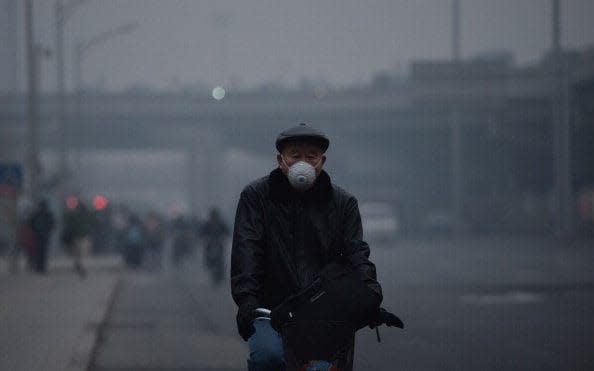Air pollution linked to higher rates of death from Covid-19

Long-term exposure to air pollution is linked to significantly higher rates of death from Covid-19 according to a new study.
Researchers from the Harvard TH Chan School of Public Health looked at 3,080 counties in the US and found a 15 per cent increase in the death rate from Covid-19 from an extra 1 microgram per cubic metre of fine particulate matter, known as PM2.5.
It suggests that 248 deaths from the disease in Manhattan in the period until April 4 could have been avoided by a decrease in pollution.
Experts had already surmised a link between exposure to pollution and the risks from coronavirus because it contributes to known co-morbidities such as asthma, diabetes and heart disease.
Research on previous outbreaks of SARS - another coronavirus - also showed people in areas with high air pollution were more likely to die of the disease.
But the Harvard study, which is still in the peer review process, is the first to show a clear link between pollution and deaths from Covid-19.
The study hypothesises that “because long-term exposure to PM2.5 adversely affects the respiratory and cardiovascular system, it can also exacerbate the severity of the COVID-19 infection symptoms and may increase the risk of death in COVID-19 patients.”

The average annual PM2.5 level in London in 2018 was 11mcg/m3, 1mcg/m3 above the guideline limit set by the World Health Organisation.
London has been the worst hit area in the UK for Covid-19 deaths, accounting for more than 1,700 of the total 7,097 deaths.
The authors of the study said that the findings “underscore the importance of continuing to enforce existing air pollution regulations during the COVID-19 crisis.”
The UK government has vowed to tackle the sources of PM2.5, which include road traffic and domestic wood and coal burning.
Researchers from the EU satellite Copernicus, which tracks air pollution, announced last week that they would be contributing data to exploring the role that particulate matter might play in carrying the virus.
It came after a study from the University of Bologna, in Italy, found that the death toll was higher in the Po valley, where air pollution is particularly bad.

